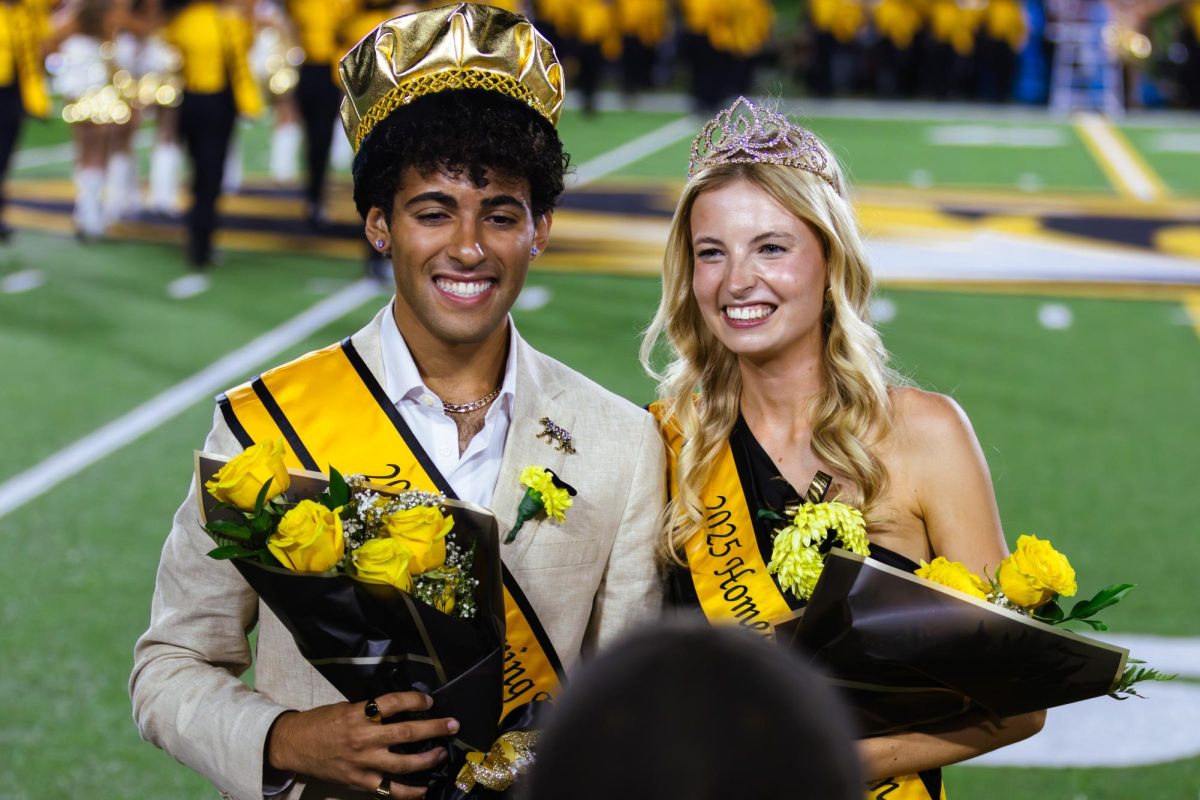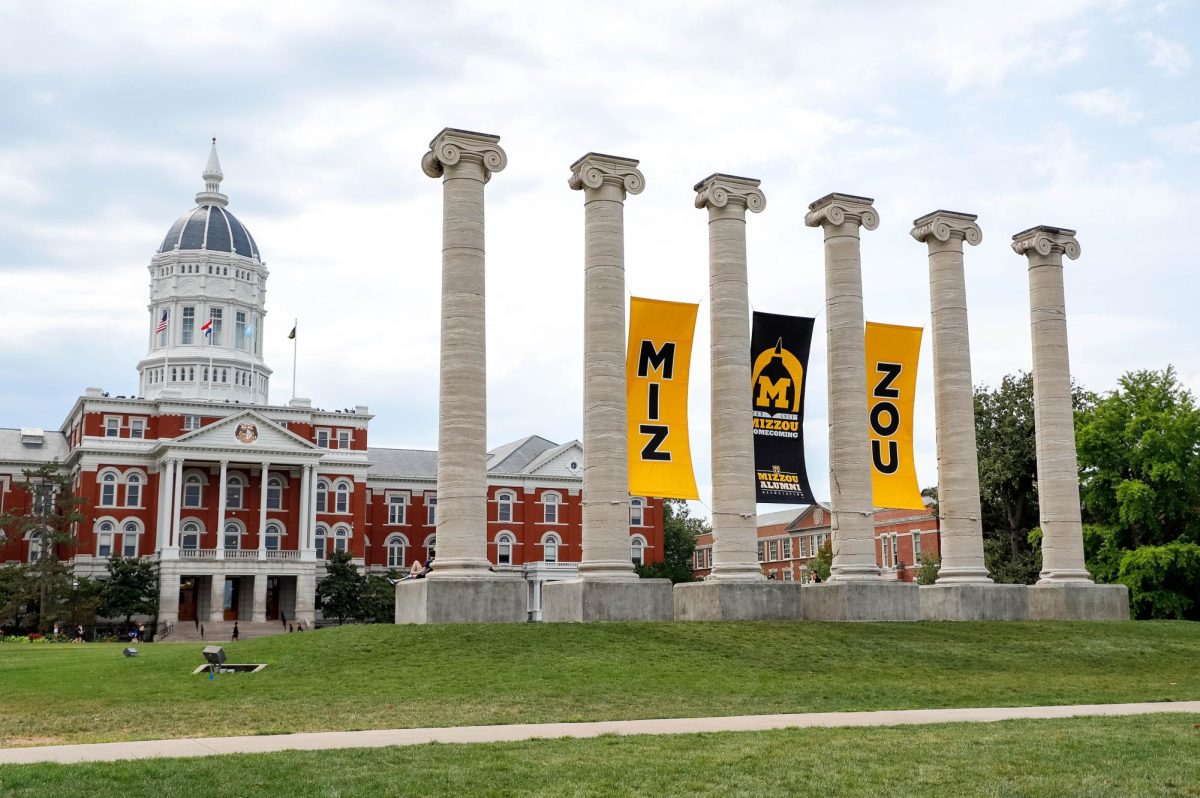Sturgill Simpson is undoubtedly a country artist, but he eschews the glitzy production that defines the genre’s mainstream for a sound that is significantly more classic. His sound evokes the golden-age of country music in the 1960s and 1970s, with splashes of soul and rock influence. This past Saturday night, the Kentucky-born, Grammy-winning, alt-country icon gave an excellent performance at the MO Lottery Stage at Roots N Blues N BBQ. The setlist featured songs from his entire discography, showcasing his outlaw country roots alongside emotionally charged covers and shrieking guitar solos.
Simpson was not a particularly flashy performer: He wore a denim jacket and a Pittsburgh Pirates T-shirt. The only other people on stage were his bassist, drummer and keyboardist. The stage itself was lit with blank, white lighting that clearly illuminated the minimal setting. The absence of technical frills kept the set focused on Simpson and his band and let the music take center stage.
The performance opened with a rousing rock-inflected rendition of the song “Breakers Roar,” the second track from his most recent album, 2016’s “A Sailor’s Guide to Earth.” The album recording of the song is a delicate lullaby, so hearing an amped-up version was certainly an unexpected (but not unwelcome) experience. “Bone break and heals / Oh, but heartaches can kill / From the inside, so it seems / Oh, I’m telling you it’s all a dream,” an impassioned Simpson sang over a soaring instrumental.
“Breakers Roar” is one of my favorite songs in Simpson’s catalogue. The songwriting is beautiful and personal and is enhanced by a soft, serene instrumental. The version played at the festival presented the song as an anthem, rather than a ballad, and brought the emotional impact of the lyrics to the forefront. The live version heightened the energy of the song and set the mood for the rest of the set.
The next song was When in Rome’s 1987 synthpop hit “The Promise.” Simpson’s resonant voice flawlessly converted the song to a sweet country ballad. The crowd swayed and sang along to the song. “The Promise” was not the only slow song in the set list. After some characteristically propulsive outlaw country numbers, Simpson performed the deep cut “I’d Have To Be Crazy” from his 2013 album “High Top Mountain.” The song was another sweet and soulful moment in an incredibly dynamic set.
After “I’d Have to be Crazy,” Simpson took a moment to address the audience, mentioning how the performance was his second-to-last show of the year because he is going to spend more time with his family. The “Sailor’s Guide to the Earth” album was specifically written as a letter to his son. A prominent theme on the album was that Simpson doesn’t want to miss him growing up. Taking a break from touring is in keeping with Simpson’s character as someone who puts family before career.
The speech was followed up with “Some Days” and “Turtles All the Way Down,” two songs that draw heavy influence from classic country music. The energy was palpable, and the audience was grooving along with the music. After “Turtles All the Way Down,” Simpson said, and then launched into one of the peak moments of the show, a devotional cover of Otis Redding’s “You Don’t Miss Your Water.” The sound was colossal, reverberating across the audience with a near-spiritual effect. The totality of the performance was enthralling, and is the kind of experience you can only get at a live show.
The all-encompassing nature of the performance made it the set’s unquestionable emotional climax, and left the audience filled with a cathartic energy that they readily discharged over the remaining numbers. The rest of Simpson’s set was distinctly up-tempo, featuring propulsive beats and impressive guitar-shredding solos. The final song was “A Sailor’s Guide to the Earth” album closer, the wild “Call to Arms.” By bringing out one of the most reckless and acrid tracks in his discography, Simpson ended his show in a style that was more rock-and-roll as it was country—a fitting conclusion for an artist who refuses to keep between his genre’s lines.
_Edited by Siena DeBolt | [email protected]_








